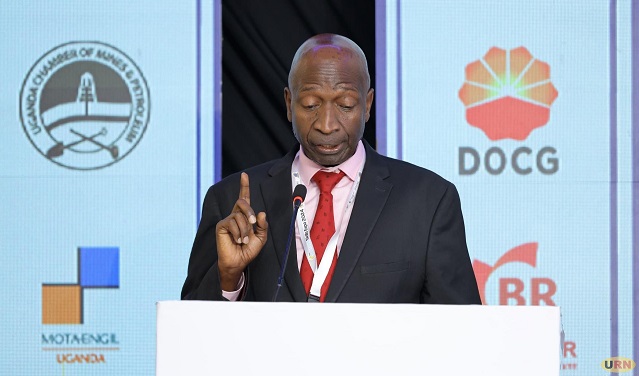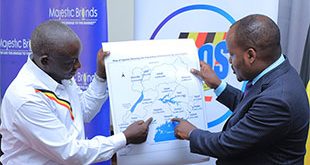
Kampala, Uganda | THE INDEPENDENT | Ugandans may no longer need to travel abroad to acquire skills in the oil and gas sector says Ernest Rubondo, the Executive Director of the Petroleum Authority.
He said the achievements of skills development in the country have not been only on manpower development.
“In the country right now there are some very high-quality training institutions that have come as a result of this effort of skilling for the oil and gas sector. Previously when we were looking at how Uganda can train its technicians we went to Malaysia. But these days when I visit Kigumba, I don’t see a very big difference from what what I saw in Malaysia”
Rubondo said the petroleum industry has helped to develop several skills that never existed in the country before the discovery of oil and gas.
He however said there are some areas where skills development has not achieved the levels that are required. Those include instrumentation, field development, and drilling technicians.
Speaking at the opening of the Oil and Gas Skills Expo 2024 under the theme “Training and Skills: Unlocking Employment Opportunities in the Oil and Gas Sector and Beyond” Rubondo revealed that over 13000 skilled workers have been trained for technical jobs for the oil and gas.
“It is also good to recognize that these trades are not restricted to the oil and gas sector. Plumbing, welding scaffolding, heavy goods vehicle driving. These skills can be used across other sectors of the economy,” said Rubondo.
“The oil and gas sector came in, supported these skills development and it has produced an excess of these workers who are now spilling into other sectors of the economy”
The training of workers for the oil and gas sector has been part of the Workforce Skill Development Strategy and plan.
The government with funding from the World Bank conducted a Workforce Skills Development Strategy and Plan (WSDSP) in 2013.
The study established that the infrastructure developments would create over one hundred, sixty thousand (160,000) direct, indirect, and induced jobs and over 70% of these jobs would be for artisans and technicians, with international certification.
From the findings, the government developed several strategies to ensure that Ugandans get employment in the nascent sector.
Part of the strategies involved the upgrading of the then-existing vocational training centers and the establishment of an oil and gas-focused vocational training center at Petroleum Institute Kigumba (UPIK).
The country now has up to three thousand Ugandan heavy goods truck drivers compared to twenty-two qualified Ugandan heavy goods truck drivers when the oil and gas sector began.
The Authority last week awarded certificates to 110 heavy goods drivers as part of efforts to build skills for the transportation of oil and gas equipment.
“Those of you who are not so young will remember that in Uganda, the heavy goods vehicle truck drivers were always Somalis. You were sure that whenever you looked up a big truck, a person driving it would be a Somali and never a Ugandan,” he said.
He said apart from a few qualified heavy goods truck drivers in the country, there were even no training institutions. “I think there was only one training institution that had also started as a safety institution. The training institution did not have a truck where drivers could practice,” said Rubondo.
He said the country now has five training institutions for the instruction and training of heavy goods truck drivers.
Some of the heavy goods truck drivers in the oil and gas sector are women. Most of them were trained as part of the skills development for the oil sector.
“I think now if you are on the road and you see a heavy goods vehicle. If you look up the vehicle, you are not likely to see a Somali driving it. You can correct me if I’m wrong,” added Rubondo.
“Somalis are not bad people; we have a very good working relationship, but heavy goods vehicle driving is not very complicated that requires people to come from outside the country” he empathized.
*****
URN
 The Independent Uganda: You get the Truth we Pay the Price
The Independent Uganda: You get the Truth we Pay the Price



